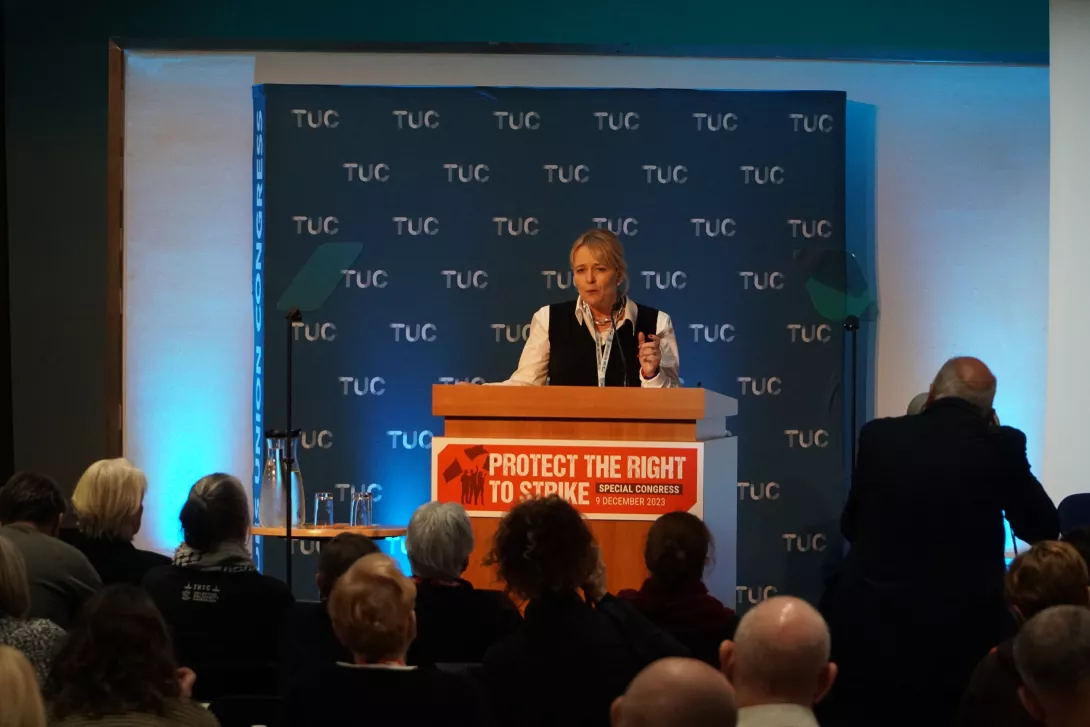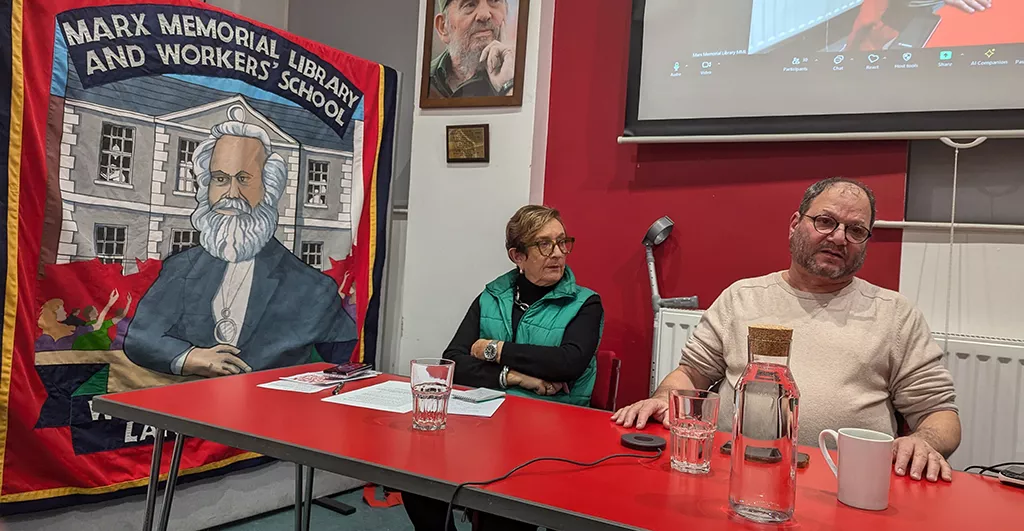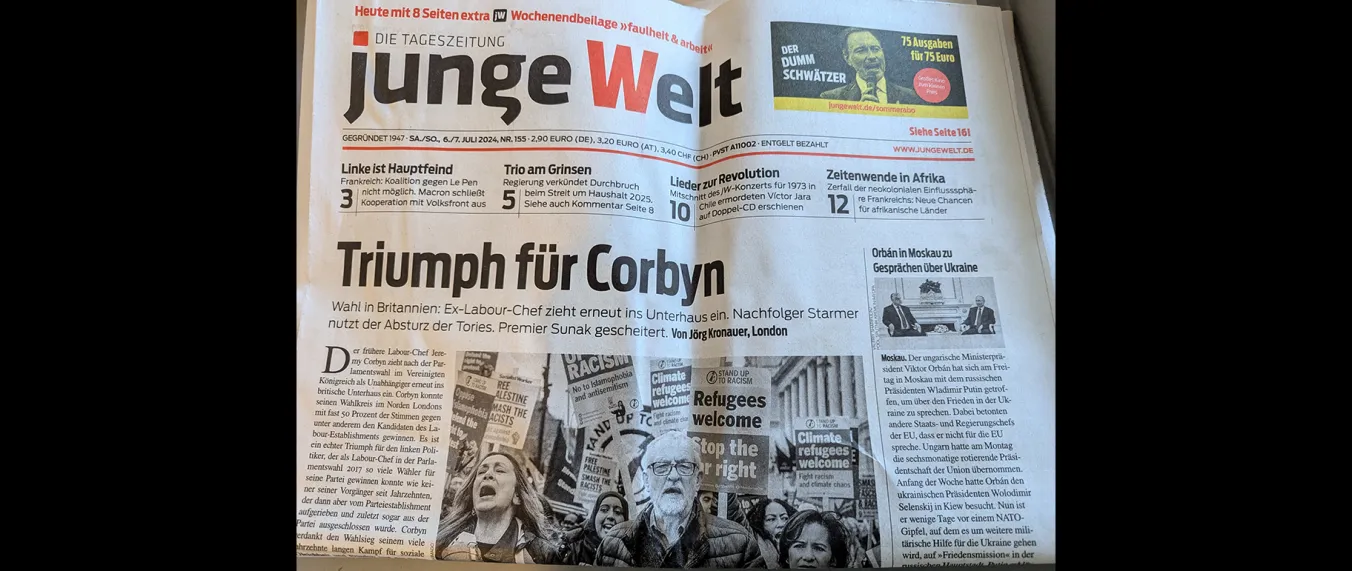
SATURDAY’S TUC special congress made serious commitments which, if fulfilled, mean a step-change in co-ordinated resistance to anti-strike laws.
Unions are now committed to direct defiance of the law: they have agreed they will not instruct members to cross picket lines, when the Strikes (Minimum Service Levels) Act stipulates that they must take “all reasonable steps” to ensure any of their members named in a work notice issued by an employer do go to work during strike action.
They are committed to help each other. If any union is sanctioned under the new legislation — which provides for fines of up to £1 million and sequestration of union assets if they are deemed not to have complied with the Act — an emergency meeting of the TUC executive will meet to decide what assistance is provided.
If any member is disciplined under the new law — which removes protection from unfair dismissal from anyone not complying with a work notice — not only will the TUC step in to help, it has agreed to call an emergency demonstration in their defence.
And it will turn January 27’s Cheltenham demonstration in commemoration of the fight for union rights at GCHQ into a defiant assertion of workers’ right to strike.
This battle will not be easy. As RMT leader Mick Lynch pointed out, the fact that Tories have introduced this law against the advice of many employers does not mean we should expect employers not to use it against unions.
Campaigning to force commitments from employers never to issue a work notice has already succeeded in securing these guarantees from the Scottish and Welsh governments: it must be stepped up, to encompass every level of devolved power, every essential service and private business, with bosses warned that not doing so will poison industrial relations from the off.
To succeed, unions need to be a force to be reckoned with in every workplace. The strike wave of the last 18 months has demonstrated this for many workplaces, but it must be built on, and unions need to be outward-looking: four in five British workers are not unionised.
The advantage of being in a union must be shouted from the rooftops. The pay victories of the last year must be celebrated and publicised. The TUC demo on January 27 in Cheltenham will be a good place to start, but trades councils will have a role to play in co-ordinating local publicity and campaigning across the country.
The TUC itself will need to play a more prominent co-ordinating role. The shared action plans called for by CWU leader Dave Ward point to the need for the TUC general council to become a general staff for the army of organised labour. And UCU leader Jo Grady’s recognition that the TUC will need to look now at how to raise funds to counter the sanctions unions may face is important.
The mass campaign of defiance can make political demands too. The British Dietetic Association’s Annette Mansell-Green talked of turning the Tory narrative upside down by demanding not minimum but maximum service levels: making the public case for the investment needed to restore crippled services to health.
More than one delegate pointed to the fact that a Labour government will need to be put under pressure to keep its word on repealing this vicious legislation.
If the militant campaign spoken of on Saturday becomes a reality, it can do more than that: it can place the demands for nationalisation and higher public spending front and centre of British politics over the next year, forcing Labour to improve its offer or forego the votes of millions of trade unionists.
As Unite’s Sharon Graham phrased it, the anti-strike law is a declaration of war on unions by the government. Unions have issued their counter-declaration: now battle must be joined.

















